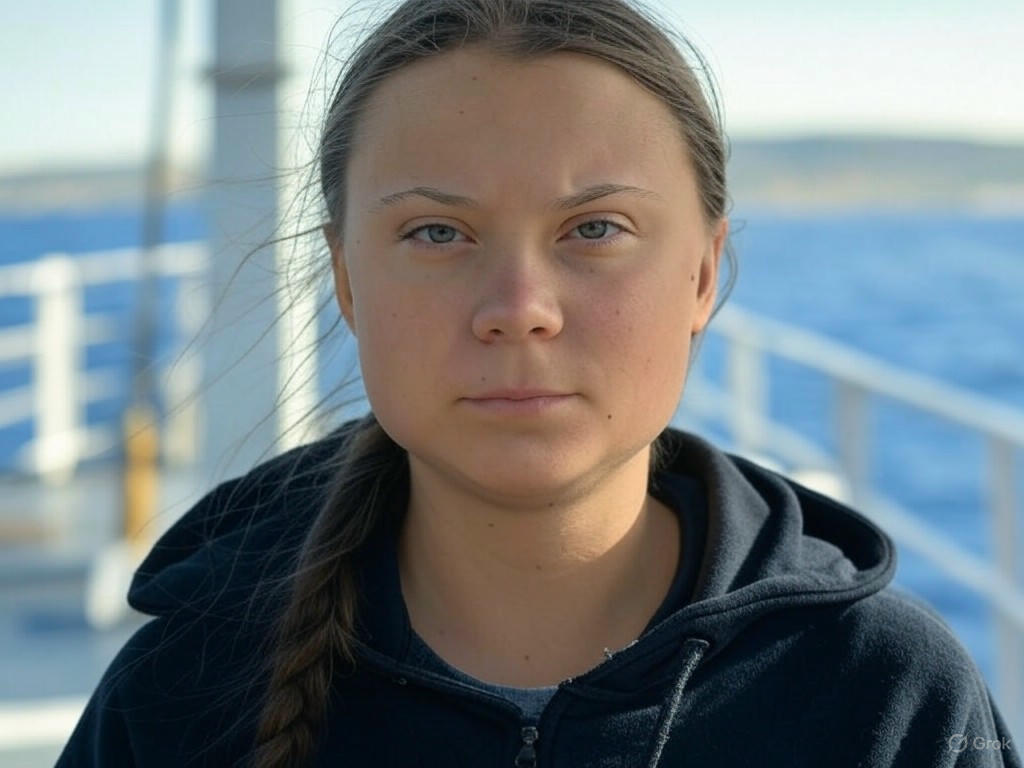Tensions Rise as Israel Halts Aid Flotilla with Greta Thunberg Aboard
In a move that has sparked international debate, Israel’s defense authorities have instructed their military to intercept an aid vessel en route to Gaza, a ship carrying prominent climate activist Greta Thunberg among other humanitarian workers. The boat, operated by the Freedom Flotilla Coalition, a global nonprofit dedicated to delivering essential supplies to conflict zones, aimed to provide critical support to the beleaguered residents of Gaza. This decision, announced over the weekend, has intensified discussions about humanitarian access and geopolitical tensions in the region.
The Freedom Flotilla Coalition has long been involved in efforts to break through blockades and deliver aid to areas under restriction, with Gaza being a focal point due to its ongoing humanitarian crisis. The inclusion of Greta Thunberg, a figure widely recognized for her environmental advocacy, has brought additional attention to the mission. While Thunberg’s primary platform has been climate change, her presence on the flotilla underscores a growing intersection between environmental and social justice causes. Her involvement signals a call for global solidarity, highlighting how crises like those in Gaza are interconnected with broader issues of inequality and human rights.
Israel’s decision to block the vessel stems from security concerns, with officials arguing that such missions could pose risks by potentially smuggling unauthorized materials or supporting groups they deem as threats. The blockade of Gaza, in place for years, is a deeply contentious policy, with Israel maintaining it as a necessary measure to protect its borders, while critics argue it severely restricts the flow of essential goods and exacerbates suffering among civilians. The interception of this particular flotilla, however, has drawn sharp criticism from activists and humanitarian organizations who view it as a direct obstruction of lifesaving aid. Social media platforms have buzzed with reactions, many expressing frustration over the barriers faced by those attempting to assist vulnerable populations.
This incident is not the first of its kind. Past attempts by the Freedom Flotilla Coalition to reach Gaza have also been met with resistance, often resulting in confrontations at sea. The presence of a high-profile figure like Thunberg, however, raises the stakes, potentially drawing more international scrutiny to the plight of Gaza’s residents. Advocates for the mission argue that every blocked shipment represents a missed opportunity to alleviate hunger, provide medical care, and offer hope to those in desperate need.
As the situation unfolds, the world watches to see how this standoff will resolve. Will diplomatic channels open to negotiate safe passage for aid, or will this become another flashpoint in an already volatile region? For now, the halted flotilla serves as a stark reminder of the challenges facing humanitarian efforts in conflict zones. It also amplifies the voices of activists like Thunberg, who continue to push for action on multiple fronts—be it climate or compassion. The hope remains that dialogue and cooperation can eventually pave the way for aid to reach those who need it most.


